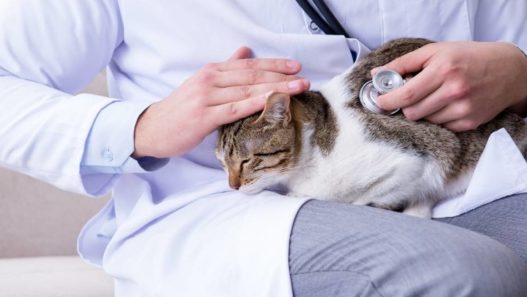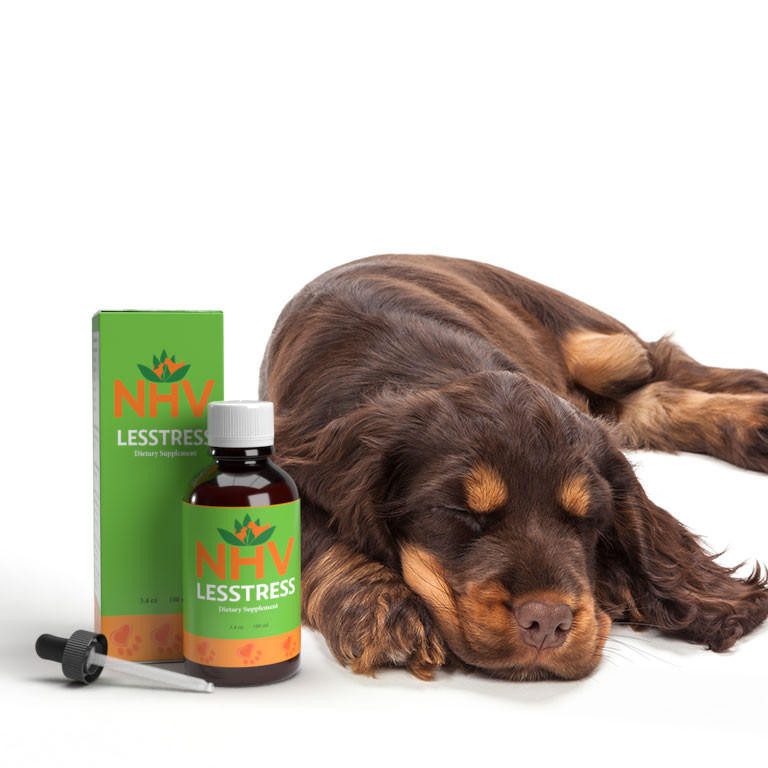

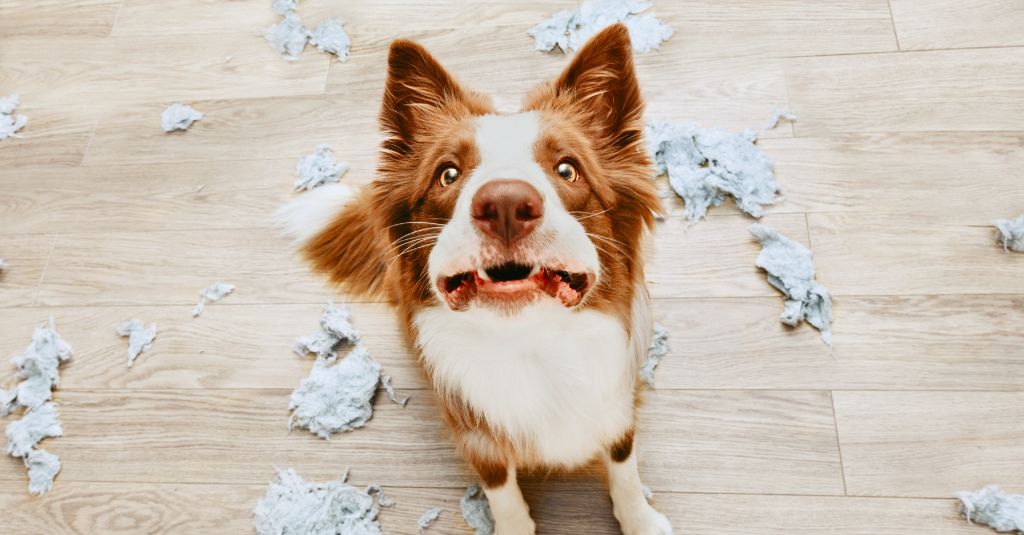
Separation anxiety is a behavioral problem that manifests when dogs or cats are left alone by or separated from their parents. It is the second most common behavioral issue for dogs, and although not frequently discussed, it can also affect cats.
Separation anxiety affects well-being, negatively impacting both their emotional and physical health, and may also disrupt the human-animal bond.
Common Signs of Separation Anxiety
Behaviors that are associated with separation anxiety in dogs are:

- Chewing, digging, and destructive behavior
- Excessive barking and howling
- Urinating and defecating inside the house or in uncommon places
- Escaping
- Pacing
On the other hand, cats can manifest the following signs:
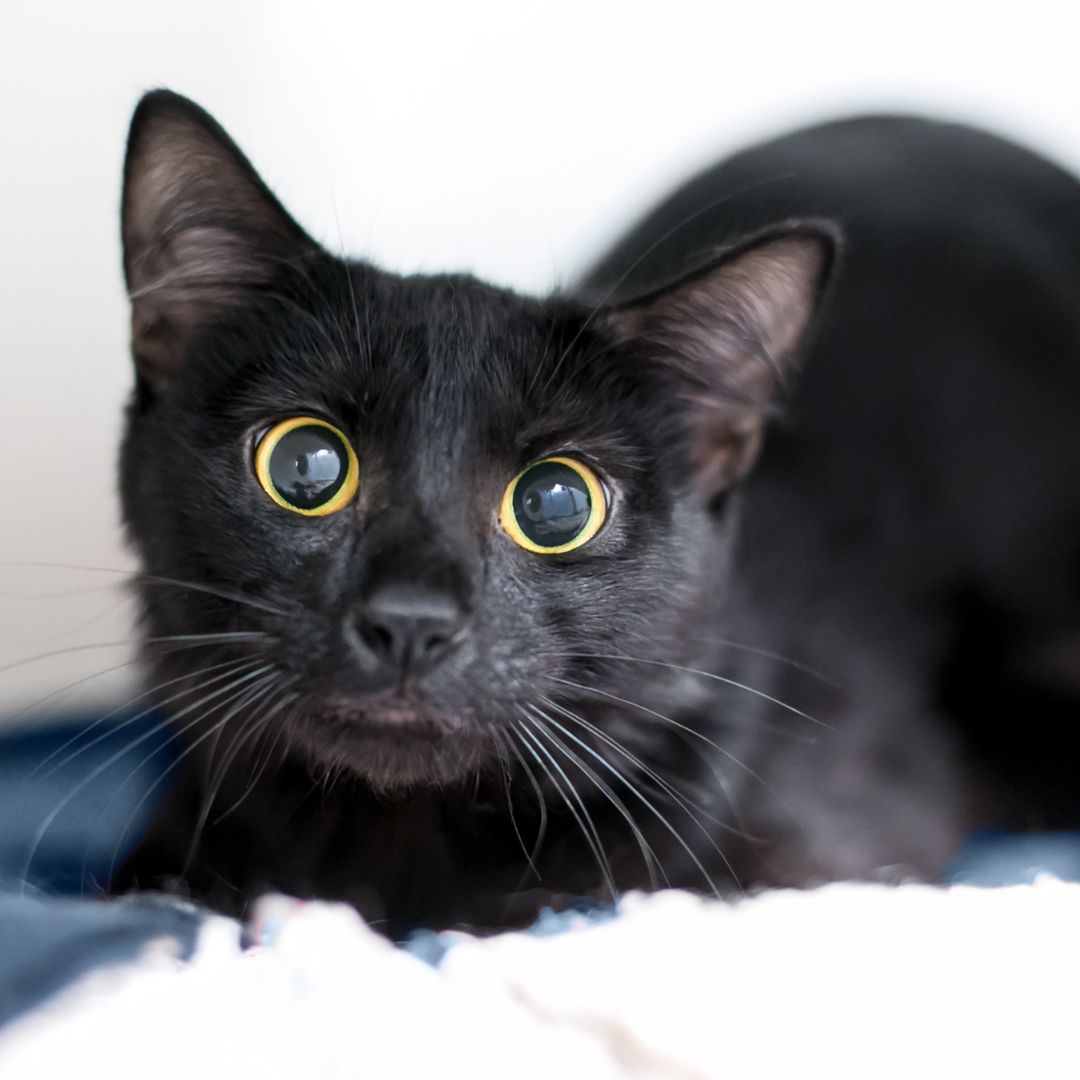
- Excessive meowing and moaning
- Not eating and drinking during the pet parent’s absence
- Urination in uncommon places
- Excessive self-grooming
- Destructive behavior
- Vomiting
Gentle Strategies to Manage Separation Anxiety
First, it’s very important to rule out other behavioral and non-behavioral conditions that can show similar behavioral signs as separation anxiety. Many different health disorders can present similar symptoms.
If your trusted vet states that your little one experiences separation anxiety, it’s essential to seek a certified animal behavior specialist to address the situation appropriately.
Strategies to help furry friends with separation anxiety must be respectful, gentle, gradual, and free of fear. While the therapeutic approach may differ in some respects between dogs and cats, the following are general aspects of these strategies:
Create a safe, enriched environment
Everything must start always from the basics. It’s crucial to make sure that you meet all your pet’s basic needs, like balanced nutrition, social interactions, exercise and play, training, and elimination. It’s also important to develop an area where they know they can rest, relax, and sleep without worrying, in order to create a safe space where they can stay while you’re absent.
Establish a predictable routine
Making the day more predictable can help them reduce anxiety since they can predict what will happen and be mentally prepared for that. Ideally, all their activities must be included in the routine, like feeding, eliminating, exercising, playing, and napping. In a more advanced phase, activities, when they don’t expect attention (like napping or playing with their toys), should be scheduled to be done at times when you usually leave home.
Desensitization
This is a slow, complex process that requires the guidance of a specialist. It consists of gradually exposing a pet to the stimulus that makes them anxious (pet parent’s absence) but in a way that will not allow the pet to feel anxious. This process uses progressive techniques like eliminating the pet’s reactions to pre-departure cues, doing out-of-sight exercises, incorporating short absences, and gradually increasing the length.
Training Techniques for Calming Pets
There are training techniques that can help reduce anxiety
There are training techniques that can help reduce anxiety, and these should be implemented using the pet’s most desirable rewards. In these cases, pet parents should reinforce desired behaviors like settling down, independence, relaxation, and being calm during departure and returning home. Training on how to settle down is also helpful, as it can facilitate the implementation of more complex strategies.
Reinforcing desired behavior is important, but it is equally crucial to avoid reinforcing behaviors that reflect dependence or anxiety, such as demanding attention or following. If a pet is seeking attention, the pet parent should ignore the behavior and wait until the pet calms down. Once the pet has settled, and enough time has passed, reward them with attention or another desired reward, like a healthy treat.
NHV Supplements for Emotional Support
At NHV we care about your little one’s health from a holistic approach, as we know that health is not only about physical aspects, but also mental and emotional ones. Separation anxiety and other behavioral issues can be as challenging as other physical conditions, and they should not be taken lightly as they are a fundamental part of health.
Lesstress and Matricalm are the supplements we offer our customers for a natural, gentle option to support their little one’s stress management. These supplements can be helpful not only for behavioral issues but also for nervous system conditions.
Lesstress is a great supplement to support doggies with anxiety, either caused by separation or other triggering factors like fireworks, moving, and car sickness. It can also help reduce hyperactivity, excitability, and destructive behavior, and balance the immune system.
Matricalm, best suited for kitties, may help reduce anxiety, stress, hyperactivity, aggressive behavior, and excitability. It’s a great option for stressful situations like moving, adding new members to the family, or other changes in their routine. Cats are very sensitive to environmental factors and taking care of their mental health is key to promoting healthy life.

Lesstress for Pets – Stress and Anxiety Support
Lesstress - Helps support pets suffering from stress and anxiety.

Lesstress - Helps support pets suffering from stress and anxiety.
- item number
- ph1050fb
- weight
- 0.7
-
Description
- item number
- ph1050fb
- weight
- 0.7
-
Ingredients
-
Dosage
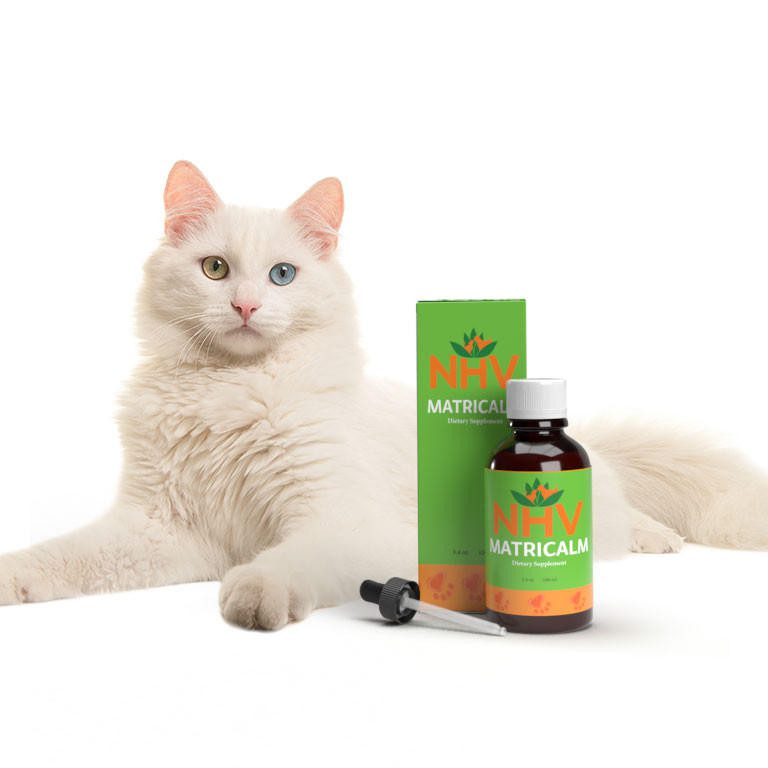
Matricalm for Pets – Stress and Anxiety Support
Matricalm - Helps support pets suffering from stress and anxiety.

Matricalm - Helps support pets suffering from stress and anxiety.
- item number
- ph1100fbd
- weight
- 0.7
-
Description
- item number
- ph1100fbd
- weight
- 0.7
-
Ingredients
-
Dosage
general wellbeing

Shelter Pet Happy Start Kit
Shelter Pet Happy Start Kit
Matricalm, Multi Essentials & Plantaeris
bundle and save with pet expert kits
3 month supply for a small to medium size
What is it?
Our Shelter Pet Happy Starter Kit is formulated to help reduce stress and anxiety (e.g. destructive behavior), add nutritional supports and help improve their digestive health as they adjust to a new life.
How does it work?
- A calming aid to help new pets relax into their forever home
- May reduce unwanted behaviors (e.g. aggression or peeing in the house)
- Rich source of vitamins and minerals to support healthy metabolism and digestion
- Natural diarrhea remedy (especially if your pet is transitioning to a new diet)
Why trust it?
The NHV team is comprised of veterinarians, veterinary technicians, and holistic Pet Experts who use NHV formulas on their own fur babies.

What is it?
Our Shelter Pet Happy Starter Kit is formulated to help reduce stress and anxiety (e.g. destructive behavior), add nutritional supports and help improve their digestive health as they adjust to a new life.
How does it work?
- A calming aid to help new pets relax into their forever home
- May reduce unwanted behaviors (e.g. aggression or peeing in the house)
- Rich source of vitamins and minerals to support healthy metabolism and digestion
- Natural diarrhea remedy (especially if your pet is transitioning to a new diet)
Why trust it?
The NHV team is comprised of veterinarians, veterinary technicians, and holistic Pet Experts who use NHV formulas on their own fur babies.
Holistic Support for Rescued Puppies and Kittens
A rescued puppy or kitten is a welcome addition to any home! But sometimes, your new furbaby has encountered trauma or a severe illness before coming home with you. If you’re a new pet pawrent asking yourself if there is an adopted puppy kit or kitten kit out there?
So many young pets are rescued from terrible situations or surrendered to shelters, so they may experience a lot of stress going from one place to another. Small changes can feel incredibly stressful for animals which can present as destructive or aggressive behavior. Unfortunately for rescued pets, it is hard to know what environment they were in or what they were eating before coming home with you. Foodwise, they may have been eating low-quality processed food that is missing essential nutrients or maybe they were malnourished (from living on the streets). To help ease your new furry friend into their forever home, we recommend adding natural supplements to their daily meals after they have been vaccinated and weaned. This preventative care plan is beneficial for supporting their overall health and to help slow down or prevent chronic illness (which may develop due to age, genetics, or environment). NHV Shelter Pet Happy Starter Hit contains Matricalm, Multi Essentials, and Plantaeris. This bundle of natural supplements has been formulated to calm stressed and anxious pets, help fill nutritional voids, and support quick recovery from diarrhea (which is prone to happen in young animals). To learn more about caring for your new furbaby, read our post on simple steps for a healthy puppy or kitten.
How NHV Supplements Provide A Comprehensive Adopted Puppy Kit and Kitten Kit
Changes in your new puppy or kitten’s environment can cause a lot of anxiety, especially if they are super sensitive (some breeds of dogs and cats are more prone to stress) or have experienced trauma. To express this nervous energy, they may exhibit destructive or aggressive behavior. To help ease your fluffy friend into their forever home, Matricalm’s blend of herbs like passion flower, chamomile and valerian contain soothing properties that may relax the body and improve the feeling of relaxation while the smell of lemon balm may instantly calm your pet’s nerves. Multi Essentials is like a multi-vitamin for pets. It helps to fill nutritional voids (especially for malnourished pets) and supports essential processes like blood pressure and metabolism. Puppies and kittens have very sensitive tummies so if you’re trying out different foods for them, or they mischievously snack on things they aren’t supposed to, Plantaeris’ blend of ingredients help to relax muscle cramping and helps lubricate delicate intestinal mucosa to aid proper digestion and help restore healthy bowel movements.
MATRICALM
- A natural calming remedy
- Contains mild (non-addictive) sedative properties
- Beneficial for reducing stress and anxiety in dogs and cats
- May reduce destructive and aggressive behavior
MULTI ESSENTIALS
- Contains a broad spectrum of vitamins and minerals to help fill nutritional voids
- Promotes a healthy brain and heart
- Encourages a healthy metabolism and energy levels
- May strengthen immune function
PLANTAERIS
- Natural diarrhea remedy that works gently and quickly
- Promotes healthy bowel movements
- May improve movement through the GI tract
- Glycerin-based (sweet taste is palatable for pets)
Natural Support for Your Rescued Pet
Your furry friend’s health means the world to us! Providing your new furkiddo with natural support from the get-go may help prevent chronic illnesses and other health issues down the road. If your new pet needs a little extra support, learn how a personalized pet diet can help your new puppy or kitten live their best life!
- item number
- WT7019
- weight
- 2.1
- volume
- 3 x 3.4 fl. oz (100ml)
- form
- liquid
- life stages
- adult, senior, puppy/kitten
- made in
- Canada
Made with the finest, organically grown, or ethically harvested herbs. Made specifically for pets, vet-formulated and vet approved.
Matricalm
- Chamomile has a strong affinity for the nervous system and is helpful to calm nervous pets of all sizes and breeds.
- Hops has mild sedative properties that are known to increase capillary circulation and stimulate digestion. It is known to relieve anxiety, improve sleep and calm excitability.
- Lemon Balm is an aromatic herb that has been used since the Middle Ages to relieve mood disorders like nervousness and excitability.
- Passion Flower contains gentle (non-addictive) sedatives that increase gamma-aminobutyric acid (GABA) levels in the brain to promote feelings of relaxation.
- Valerian is known to help lower blood pressure (e.g. stop heart palpitations), reduce anxiety and help regulate the nervous system. It acts as a gentle sedative and may also improve sleep quality.
Multi Essentials
- Alfalfa contains a broad spectrum of nutrients, including high protein levels (50%), vitamins, amino acids, minerals, sugars, and other nutrients.
- Asian Ginseng has a long history of enhancing the body’s resistance to stress and improving overall vitality. It may also improve the digestion of carbs and fats.
- Chickweed is a nutritious digestive tonic that can aid with issues like hairballs or ingesting a foreign object because it encourages gentle elimination.
- Dandelion is considered to be one of the most nutritious plant foods on earth. It is a rich source of vitamin A, C, K, D, B complex, iron, manganese, phosphorus, potassium and many trace minerals beneficial for improving liver function, digestion and stimulating appetite.
- Kelp is a nutrient-dense herb rich in macro minerals like calcium, potassium, manganese, and trace minerals helpful for metabolism and maintaining a healthy weight.
- Marshmallow is a soothing herb that contains high calcium levels and is beneficial for lubricating irritated inner tissue.
- Oat contains many nutrients, including protein, vitamins, and minerals (calcium, manganese, iron, zinc, copper) essential for maintaining health and strengthening the nervous system against stress and fatigue.
- Oregon Grape is known for its antimicrobial and anti-inflammatory properties that help increase bile flow (improves digestion).
- Parsley contains protein (up to 22%), vitamins (A, C, B1, B2, K), and minerals (calcium, riboflavin, potassium, iron, magnesium, niacin, phosphorus)
- Stinging Nettle is a highly nutritious herb rich in vitamins and minerals. It may help improve the metabolic efficiency of the body and strengthen immune function.
- Yucca is a rich source of protein, vitamins and minerals, and saponin compounds, which help enhance absorption with the added benefit of reducing unpleasant odors in urine and feces.
Plantaeris
- Barberry has been used to relieve stomach aches and diarrhea. Studies have shown that barberry may improve diarrhea symptoms faster than antibiotics, possibly due to its astringent and antibiotic properties.
- Bayberry contains various compounds that effectively fight bacterial infections, help regulate potassium and sodium levels, and act as a circulatory stimulant.
- Chamomile has been used for centuries to stimulate digestion and soothe the digestive tract. It may help with indigestion and improve bile production.
- Chinese Peonies have been used in Chinese Medicine to support the liver and elimination of wastes by helping to relieve muscle spasms and stomach aches.
- Ginger contains enzymes that may improve intestinal muscle tone to encourage the gentle elimination of wastes and circulation.
- Mullein is a soothing herb that is known to relieve stomach cramps and its antibacterial properties diarrhea-causing bacteria.
- Myrrh is rich in terpenoids and sesquiterpenes, which contain anti-inflammatory and antioxidant properties that help relieve overall digestive discomfort and stimulate the immune system.
- Oregon Grape contains antimicrobial properties that are beneficial for relieving indigestion and malabsorption.
- Thyme is very beneficial as an immune system aid (increasing white blood cell count and increasing resistance to pathogens). It has traditionally been used to relieve symptoms of IBD and colitis.
Pet's Weight Dosage
To be taken twice daily. All NHV supplements are designed to be used together, and can, therefore, be given at once for convenience.
Select your pet's weight to determine the correct dose.
To be taken twice daily. (Each supplement) Determine your pet’s weight and then use the easy chart below to determine the correct dose. This is the minimum dosage.
Pet's Weight Dosage
0 - 15 lb = 0.5 ml
16 - 30 lb = 1.0 ml
31 - 45 lb = 1.5 ml
46 - 60 lb = 2.0 ml
61 - 75 lb = 2.5 ml
Over 75 lb = 3.0 ml
For small animals (rabbits, ferrets), avians and reptiles use 1 drop for every 2 lb of body weight.
Long term use: Feed recommended dosage every other day (1 day on 1 day off). If used in large dosages or over a long period of time it may become irritating to the stomach lining. Some pets may require a larger dosage due to their metabolism. You can safely double the recommended dosage.
How to Administer: Shake well before use. The easiest method is to use the dropper provided and place the drops into your pet’s food or favorite treat. You can also use the dropper and squirt directly into the pet’s mouth. Some pets can be finicky, if this occurs consider hiding the drops in foods most pet’s love such as fish, chicken or yogurt or a favourite treat. If your pet only eats dry food then soak a few kibbles at feeding time.
For Best Results: Herbal dietary supplements are beneficial to the health and well-being of your pet and are safe for long-term use. Every pet responds to natural herbal supplements differently, therefore it is important to be consistent and administer the product daily. Supplements generally take two to four weeks to take effect, however this will vary from one animal to the next.
Product Storage: All NHV Natural Pet Products are pure herbal extracts and contain no artificial additives, preservatives or coloring. Shelf life after opening is 6 months and must be refrigerated after opening.
Cautions and Contraindications: Do not use Yucca in pregnant or nursing animals. Allowing breaks in feeding helps alleviate the possibility of a irritating effect on the digestive tract. Speak to your vet before using our products. A second visit is recommended if your pet’s condition does not improve, or deteriorates after continued use of the supplements. All information provided by NHV Natural Pet Products is for educational purposes only.
-
Description
Holistic Support for Rescued Puppies and Kittens
A rescued puppy or kitten is a welcome addition to any home! But sometimes, your new furbaby has encountered trauma or a severe illness before coming home with you. If you’re a new pet pawrent asking yourself if there is an adopted puppy kit or kitten kit out there?
So many young pets are rescued from terrible situations or surrendered to shelters, so they may experience a lot of stress going from one place to another. Small changes can feel incredibly stressful for animals which can present as destructive or aggressive behavior. Unfortunately for rescued pets, it is hard to know what environment they were in or what they were eating before coming home with you. Foodwise, they may have been eating low-quality processed food that is missing essential nutrients or maybe they were malnourished (from living on the streets). To help ease your new furry friend into their forever home, we recommend adding natural supplements to their daily meals after they have been vaccinated and weaned. This preventative care plan is beneficial for supporting their overall health and to help slow down or prevent chronic illness (which may develop due to age, genetics, or environment). NHV Shelter Pet Happy Starter Hit contains Matricalm, Multi Essentials, and Plantaeris. This bundle of natural supplements has been formulated to calm stressed and anxious pets, help fill nutritional voids, and support quick recovery from diarrhea (which is prone to happen in young animals). To learn more about caring for your new furbaby, read our post on simple steps for a healthy puppy or kitten.How NHV Supplements Provide A Comprehensive Adopted Puppy Kit and Kitten Kit
Changes in your new puppy or kitten’s environment can cause a lot of anxiety, especially if they are super sensitive (some breeds of dogs and cats are more prone to stress) or have experienced trauma. To express this nervous energy, they may exhibit destructive or aggressive behavior. To help ease your fluffy friend into their forever home, Matricalm’s blend of herbs like passion flower, chamomile and valerian contain soothing properties that may relax the body and improve the feeling of relaxation while the smell of lemon balm may instantly calm your pet’s nerves. Multi Essentials is like a multi-vitamin for pets. It helps to fill nutritional voids (especially for malnourished pets) and supports essential processes like blood pressure and metabolism. Puppies and kittens have very sensitive tummies so if you’re trying out different foods for them, or they mischievously snack on things they aren’t supposed to, Plantaeris’ blend of ingredients help to relax muscle cramping and helps lubricate delicate intestinal mucosa to aid proper digestion and help restore healthy bowel movements.
MATRICALM
- A natural calming remedy
- Contains mild (non-addictive) sedative properties
- Beneficial for reducing stress and anxiety in dogs and cats
- May reduce destructive and aggressive behavior
MULTI ESSENTIALS
- Contains a broad spectrum of vitamins and minerals to help fill nutritional voids
- Promotes a healthy brain and heart
- Encourages a healthy metabolism and energy levels
- May strengthen immune function
PLANTAERIS
- Natural diarrhea remedy that works gently and quickly
- Promotes healthy bowel movements
- May improve movement through the GI tract
- Glycerin-based (sweet taste is palatable for pets)
Natural Support for Your Rescued Pet
Your furry friend’s health means the world to us! Providing your new furkiddo with natural support from the get-go may help prevent chronic illnesses and other health issues down the road. If your new pet needs a little extra support, learn how a personalized pet diet can help your new puppy or kitten live their best life!
- item number
- WT7019
- weight
- 2.1
- volume
- 3 x 3.4 fl. oz (100ml)
- form
- liquid
- life stages
- adult, senior, puppy/kitten
- made in
- Canada
-
Ingredients
Made with the finest, organically grown, or ethically harvested herbs. Made specifically for pets, vet-formulated and vet approved.
Matricalm
- Chamomile has a strong affinity for the nervous system and is helpful to calm nervous pets of all sizes and breeds.
- Hops has mild sedative properties that are known to increase capillary circulation and stimulate digestion. It is known to relieve anxiety, improve sleep and calm excitability.
- Lemon Balm is an aromatic herb that has been used since the Middle Ages to relieve mood disorders like nervousness and excitability.
- Passion Flower contains gentle (non-addictive) sedatives that increase gamma-aminobutyric acid (GABA) levels in the brain to promote feelings of relaxation.
- Valerian is known to help lower blood pressure (e.g. stop heart palpitations), reduce anxiety and help regulate the nervous system. It acts as a gentle sedative and may also improve sleep quality.
Multi Essentials
- Alfalfa contains a broad spectrum of nutrients, including high protein levels (50%), vitamins, amino acids, minerals, sugars, and other nutrients.
- Asian Ginseng has a long history of enhancing the body’s resistance to stress and improving overall vitality. It may also improve the digestion of carbs and fats.
- Chickweed is a nutritious digestive tonic that can aid with issues like hairballs or ingesting a foreign object because it encourages gentle elimination.
- Dandelion is considered to be one of the most nutritious plant foods on earth. It is a rich source of vitamin A, C, K, D, B complex, iron, manganese, phosphorus, potassium and many trace minerals beneficial for improving liver function, digestion and stimulating appetite.
- Kelp is a nutrient-dense herb rich in macro minerals like calcium, potassium, manganese, and trace minerals helpful for metabolism and maintaining a healthy weight.
- Marshmallow is a soothing herb that contains high calcium levels and is beneficial for lubricating irritated inner tissue.
- Oat contains many nutrients, including protein, vitamins, and minerals (calcium, manganese, iron, zinc, copper) essential for maintaining health and strengthening the nervous system against stress and fatigue.
- Oregon Grape is known for its antimicrobial and anti-inflammatory properties that help increase bile flow (improves digestion).
- Parsley contains protein (up to 22%), vitamins (A, C, B1, B2, K), and minerals (calcium, riboflavin, potassium, iron, magnesium, niacin, phosphorus)
- Stinging Nettle is a highly nutritious herb rich in vitamins and minerals. It may help improve the metabolic efficiency of the body and strengthen immune function.
- Yucca is a rich source of protein, vitamins and minerals, and saponin compounds, which help enhance absorption with the added benefit of reducing unpleasant odors in urine and feces.
Plantaeris
- Barberry has been used to relieve stomach aches and diarrhea. Studies have shown that barberry may improve diarrhea symptoms faster than antibiotics, possibly due to its astringent and antibiotic properties.
- Bayberry contains various compounds that effectively fight bacterial infections, help regulate potassium and sodium levels, and act as a circulatory stimulant.
- Chamomile has been used for centuries to stimulate digestion and soothe the digestive tract. It may help with indigestion and improve bile production.
- Chinese Peonies have been used in Chinese Medicine to support the liver and elimination of wastes by helping to relieve muscle spasms and stomach aches.
- Ginger contains enzymes that may improve intestinal muscle tone to encourage the gentle elimination of wastes and circulation.
- Mullein is a soothing herb that is known to relieve stomach cramps and its antibacterial properties diarrhea-causing bacteria.
- Myrrh is rich in terpenoids and sesquiterpenes, which contain anti-inflammatory and antioxidant properties that help relieve overall digestive discomfort and stimulate the immune system.
- Oregon Grape contains antimicrobial properties that are beneficial for relieving indigestion and malabsorption.
- Thyme is very beneficial as an immune system aid (increasing white blood cell count and increasing resistance to pathogens). It has traditionally been used to relieve symptoms of IBD and colitis.
-
Dosage
Pet's Weight Dosage
To be taken twice daily. All NHV supplements are designed to be used together, and can, therefore, be given at once for convenience.
Select your pet's weight to determine the correct dose.
To be taken twice daily. (Each supplement) Determine your pet’s weight and then use the easy chart below to determine the correct dose. This is the minimum dosage.
Pet's Weight Dosage
0 - 15 lb = 0.5 ml
16 - 30 lb = 1.0 ml
31 - 45 lb = 1.5 ml
46 - 60 lb = 2.0 ml
61 - 75 lb = 2.5 ml
Over 75 lb = 3.0 ml
For small animals (rabbits, ferrets), avians and reptiles use 1 drop for every 2 lb of body weight.
Long term use: Feed recommended dosage every other day (1 day on 1 day off). If used in large dosages or over a long period of time it may become irritating to the stomach lining. Some pets may require a larger dosage due to their metabolism. You can safely double the recommended dosage.
How to Administer: Shake well before use. The easiest method is to use the dropper provided and place the drops into your pet’s food or favorite treat. You can also use the dropper and squirt directly into the pet’s mouth. Some pets can be finicky, if this occurs consider hiding the drops in foods most pet’s love such as fish, chicken or yogurt or a favourite treat. If your pet only eats dry food then soak a few kibbles at feeding time.
For Best Results: Herbal dietary supplements are beneficial to the health and well-being of your pet and are safe for long-term use. Every pet responds to natural herbal supplements differently, therefore it is important to be consistent and administer the product daily. Supplements generally take two to four weeks to take effect, however this will vary from one animal to the next.
Product Storage: All NHV Natural Pet Products are pure herbal extracts and contain no artificial additives, preservatives or coloring. Shelf life after opening is 6 months and must be refrigerated after opening.
Cautions and Contraindications: Do not use Yucca in pregnant or nursing animals. Allowing breaks in feeding helps alleviate the possibility of a irritating effect on the digestive tract. Speak to your vet before using our products. A second visit is recommended if your pet’s condition does not improve, or deteriorates after continued use of the supplements. All information provided by NHV Natural Pet Products is for educational purposes only.
Published: January 6, 2025

 USD
USD
 Canadian Dollars
Canadian Dollars






